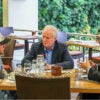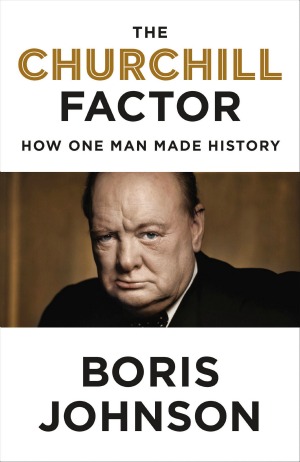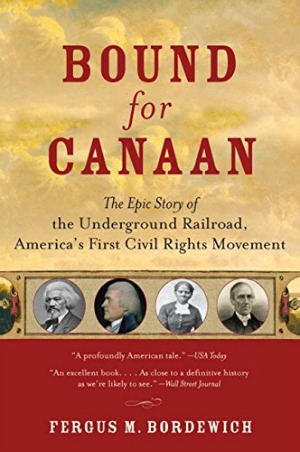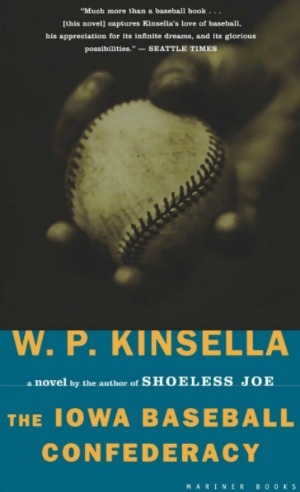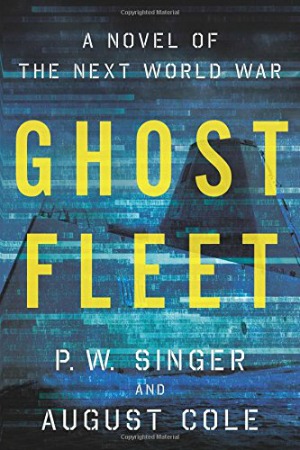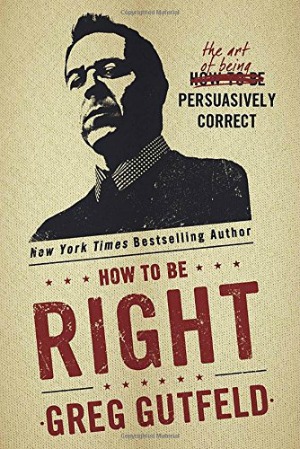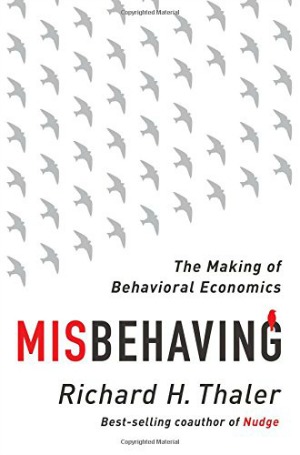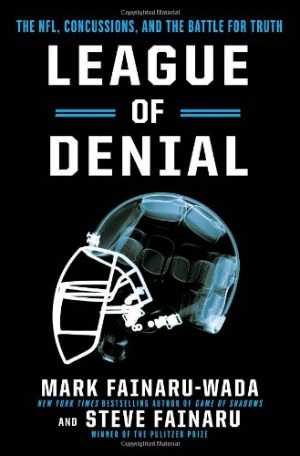Looking for a good book to start the new year?
We’ve put together a list of recommendations by Heritage Foundation experts that will give you plenty of interesting reading options for 2016.
History
The Daily Signal depends on the support of readers like you. Donate now
1) “Hamilton versus Jefferson in the Washington Administration: Completing the Founding or Betraying the Founding?” by Carson Holloway
Carson Holloway’s study of the constitutional and political clashes of George Washington’s two great cabinet secretaries—Alexander Hamilton and Thomas Jefferson—reminds us that the politics of the founding are still relevant today.
Hamilton and Jefferson squared off on issues such as the scope of the national government’s powers, the role of that government in promoting economic growth, and the principles that should guide our foreign policy. We are still debating those questions, and Holloway shows that our debates can be enlightened by studying the arguments put forward by these two great statesmen of the founding.
—David Azerrad is the director of the B. Kenneth Simon Center for Principles and Politics and AWC Family Foundation Fellow.
2) “The Churchill Factor: How One Man Changed History” by Boris Johnson
Boris Johnson, London’s eccentric mayor, is also a prolific author of popular history. His book “The Churchill Factor” is a hugely entertaining and breathless account of the British World War II leader’s life and times.
Johnson not only makes a compelling case for Churchill’s central place in changing 20th-century history, but follows him through his many various exploits. Johnson describes Churchill being in the thick of the Boer War as a daredevil in early aviation (which almost cost him his life), to nearly being a participant on the beaches of Normandy on D-Day, only to be dissuaded by an order of the king.
Its a great read for a wintry afternoon.
—Helle Dale is a senior fellow for public diplomacy in the Kathryn and Shelby Cullom Davis Institute for International Studies at The Heritage Foundation.
3) “Bound for Canaan: The Epic Story of the Underground Railroad, America’s First Civil Rights Movement” by Fergus Bordewich
It’s a well-crafted history of the Underground Railroad, which weaves the stories of black and white American heroes who created an illegal, organic social network that helped thousands of slaves make good their escapes.
Bordewich shows how the Underground Railroad managed to balance and achieve two goals: shuttling individual runaways to safety and building a moral case for abolition throughout the North. It’s fascinating to see how a movement grounded explicitly in religious morality succeeded in the face of overwhelming secular opposition.
—Salim Furth is a research fellow for The Institute for Economic Freedom and Opportunity at The Heritage Foundation.
4) “The Good Spy: The Life and Death of Robert Ames” by Kai Bird
This is a well-written history of U.S. involvement in the Middle East since World War II, as told through the biography of CIA officer Robert Ames.
—James M. Roberts is a research fellow at The Heritage Foundation’s Center for International Trade and Economics.
5) “The Fall of the Ottomans: The Great War in the Middle East” by Eugene Rogan
This book is a must-read for those wanting a better understanding of how events and decisions made 100 years ago still resonate throughout the Middle East today. It follows the downfall of the Ottoman Empire during World War I, telling the story through the eyes of the Ottomans in a way no other book on this subject has been able to.
In a highly readable book, Eugene Rogan, the director of the Middle East Centre at St. Antony’s College, Oxford, explains how Turkey stumbled into the war on the side of Germany and how its defeat led to the collapse of an empire that had ruled for more than 600 years.
2016 marks the centenary of a number of events mentioned in the book, including the beginning of the Arab Revolt led by T.E. Lawrence (Lawrence of Arabia) and the Sykes-Picot Agreement between the British and the French dividing up the post-war Middle East. Many of the challenges faced today in the Middle East have their origins in the collapse of the Ottoman Empire.
—Luke Coffey is the Margaret Thatcher Fellow at The Davis Institute for National Security and Foreign Policy at The Heritage Foundation.
6) “Against All Hope: A Memoir of Life in Castro’s Gulag” by Armando Valladares
This memoir is an account of the 22 years author Armando Valladares spent as a prisoner of conscience under Fidel Castro.
His only crime was upholding his Catholic faith by refusing to display Marxist propaganda on his work desk. He was kept up at night by the sound of Castro’s firing squads murdering innocent Cubans, brutally beaten, immersed in human feces, and forced to watch guards abuse and even murder other prisoners.
Years later, President Ronald Reagan ended up reading this memoir and appointed Vallandares the U.S’s ambassador the United Nations Commission on Human Rights. His unbreakable spirit guided by his faith in God makes this memoir a great motivator for all conservatives.
—Ana Quintana is a policy analyst for Latin America and the Western Hemisphere at The Heritage Foundation’s Allison Center for Foreign Policy Studies.
7) “Blacklisted by History: The Untold Story of Senator Joe McCarthy” by M. Stanton Evans
In “Blacklisted by History,” Evans details the rise and fall of Wisconsin’s oft-maligned Sen. Joe McCarthy. You’d be surprised to learn that McCarthy was an honest man—with faults, but a true patriot who has been largely vindicated by history.
—Andrew Kloster is a legal fellow in the Edwin Meese III Center for Legal and Judicial Studies at The Heritage Foundation.
8) “A New Birth of Freedom: Abraham Lincoln and the Coming of the Civil War” by Harry V. Jaffa
In his most thought-provoking book, Jaffa shows that Lincoln’s statesmanship was devoted to recovering, not enhancing, the principles on which our nation was founded. Using sources as wide-ranging as Locke and Aristotle, the Bible and Shakespeare, he sees the Civil War in light of the eternal conflict between natural right and history. With apologies to Tocqueville (and Harvey Mansfield), this is the best book ever written on America.
—Michael Sabo is a research assistant for the B. Kenneth Simon Center for Principles and Politics at The Heritage Foundation.
Novels
9) “The Iowa Baseball Confederacy: A Novel” by W.P. Kinsella
Kinsella’s book “Shoeless Joe” became the Hollywood blockbuster “Field of Dreams.” But his best novel is “The Iowa Baseball Confederacy.” It mixes magic and Indian folklore to tell the tale of time travel and an apocalyptic 2,614-inning baseball game that starts on Independence Day, 1908, in Onamata, Iowa. No other author captures the Midwest, or baseball, as well as does Kinsella.
—Andrew Kloster is a legal fellow in the Edwin Meese III Center for Legal and Judicial Studies at The Heritage Foundation.
10) “Ghost Fleet” by P.W. Singer and August Cole
For anyone who likes Tom Clancy, this is a great novel. Set in the near future, it imagines a global conflict that centers on the technology and weapons that America and her enemies may field in the next decade or two. While a fun and easy read, it raises some real issues about military technology and capabilities that national security policy makers are wrestling with today.
—Justin T. Johnson is a senior policy analyst for defense budgeting policy at The Heritage Foundation.
11) “The Leopard” by Giuseppe di Lampedusa
This book is a classic that I recommend to all.
—Alden Abbott is the deputy director of the Edwin Meese III Center for Legal and Judicial Studies and the John, Barbara, and Victoria Rumpel senior legal fellow.
Current Affairs
12)”ISIS: The State of Terror” by
A great primer on the Islamic State—its origins, strategy, ideology, and competition with al-Qaeda. It’s a good read with some policy discussion.
—Lisa Curtis is a senior research fellow for The Davis Institute for National Security and Foreign Policy at The Heritage Foundation.
13) “The Red Web: The Struggle Between Russia’s Digital Dictators and the New Online Revolutionaries” by Andrei Soldatov and Irina Borogan
“The Red Web” is a bone-chilling account of Russia’s efforts to use the Internet as a propaganda tool and the struggle by online activists to use it against totalitarianism.
Russia’s online spying and manipulation are among the most sophisticated in the world. Its troll farms seek to terrorize those who speak out against the Russian government, and its online propaganda is nothing less than an attempt to subvert perceptions of reality itself. As grim as the subject is, the authors have also produced a page-turner of a book, which is hard to put down.
—Helle Dale is a senior fellow for public diplomacy in the Kathryn and Shelby Cullom Davis Institute for International Studies at The Heritage Foundation.
14) “How to Be Right: The Art of Being Persuasively Correct” by Greg Gutfeld
There’s no better book to prepare you to win that debate with a liberal than Greg Gutfeld’s “How to Be Right: The Art of Being Persuasively Correct.” I gave this book to my team at Heritage because conservatives need to be constantly improving how we persuade others of the right policies to build a better America. We’re fortunate to be able to watch Gutfeld do this daily on Fox News’ “The Five.” Now he shares some of those secrets in his latest book.
—Rob Bluey, editor in chief, The Daily Signal
15) “The Moral Case for Fossil Fuels” by Alex Epstein
Clear, clever, thought-provoking. My favorite book of 2015.
—David Kreutzer is a senior research fellow at The Institute for Economic Freedom and Opportunity at The Heritage Foundation.
16) “Misbehaving: The Making of Behavioral Economics” by Richard H. Thaler
A highly readable book on the history of behavioral economics.
—Romina Boccia is the deputy director of the Roe Institute for Economic Policy Studies at The Heritage Foundation.
17) “League of Denial: The NFL, Concussions and the Battle for Truth” by Mark Fainaru-Wada and Steve Fainaru
Two ESPN investigative journalists explain how the NFL treated football, concussions, and brain disease in the same way that the Tobacco Industry treated tobacco, smoking, and lung cancer.
A movie entitled “Concussion,” starring Will Smith, will be released on Christmas Day, and, from the preview, the film seems to follow the story line of the book
—Paul J. Larkin Jr. is a senior legal research fellow in the Center for Legal and Judicial Studies at The Heritage Foundation.
18) “Wealth, Poverty and Politics: An International Perspective” by Thomas Sowell
A good book on income inequality.
—Patrick Tyrrell is a research coordinator in The Heritage Foundation’s Center for Data Analysis.







